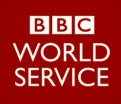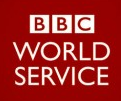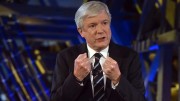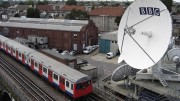 There’s a new push behind efforts to get the BBC World Service to launch a Korean-language service for North Korea.
There’s a new push behind efforts to get the BBC World Service to launch a Korean-language service for North Korea.
A group called The European Alliance for Human Rights in North Korea (EAHRNK) has published a report making a case for such a service and just launched an online petition.
In its report, EAHRNK argues that North Korean citizens need independent sources of news and information and that radio broadcasts provide the best way of delivering that to the country.
Several radio stations are already doing just this – Voice of America, Radio Free Asia, South Korea’s KBS and private stations run by North Korean defectors are on the air everyday – but that doesn’t mean the BBC’s voice would be duplicative, the report says.
“By virtue of the BBC being a British organisation, its programming would carry significantly less political baggage than that of US-funded broadcasters or services run by the ROK or North Korean defectors,” the report claims.
The report can be downloaded here.
At time of writing, the online petition has 115 signatures and needs a total of 1,000. It’s addressed to Peter Horrocks, director of the BBC World Service, and asks him to consider launching a Korean service.
The idea of a BBC World Service broadcast in Korean isn’t new. It was floated earlier this year and a 2012 report called “A Golden Opportunity” also argued for the establishment of a service. But the BBC World Service has been cutting language services in recent years as it has faced reductions in its annual budget. Adding services hasn’t been a priority.
The recent execution of Jang Song Thaek provided a platform for the proposed BBC broadcasts to be brought up in the British parliament on 16 December.
Fiona Bruce MP, vice chair of the all party parliamentary group on North Korea, asked UK Minister of State, Foreign and Commonwealth Office Hugo Swire about the chances of such a service.
“Given that a major weapon in ending Stalin’s reign of terror was the role that this country played by broadcasting the BBC World Service and breaking the Soviet information blockade — the same has been done more recently with the Burmese information blockade — and given the Foreign Secretary’s role in setting the World Service’s strategic objectives, will the Minister consider extending the BBC World Service to the Korean peninsula?,” Bruce asked in a parliamentary question.
Swire noted that the U.K.’s embassy in Pyongyang is working to bring BBC drama, nature and science programs to North Korean television.
“We believe that that has the potential to expose significant numbers of North Koreans to aspects of the outside world from which they are normally totally isolated,” he said of that plan.
Swire was later pushed on that answer by Gisela Stuart, a Labour MP for Birmingham, Edgbaston.
“Will the Minister have slightly more robust conversations with the BBC, encourage it to look at the issue of transmitters into North Korea and point out to it that BBC documentaries and drama, however entertaining they may be, are not really the answer? What is needed is the World Service and access,” she said.
Swire responded by saying it would be a decision for the BBC to make, and indicated he didn’t think it proper that the government pressure the corporation to launch such a service.
“There are reasons to do it and there are reasons not to do it, but at the end of the day, the BBC has the independence to decide where and to whom to broadcast.”
Here’s video of the question and answer period on North Korea.





Thanks for posting this.